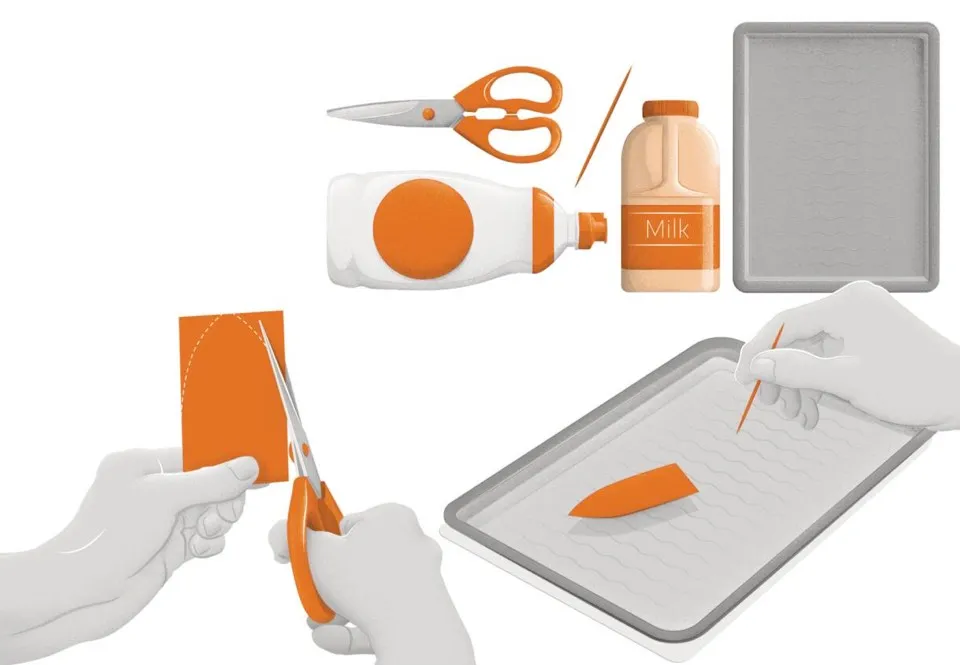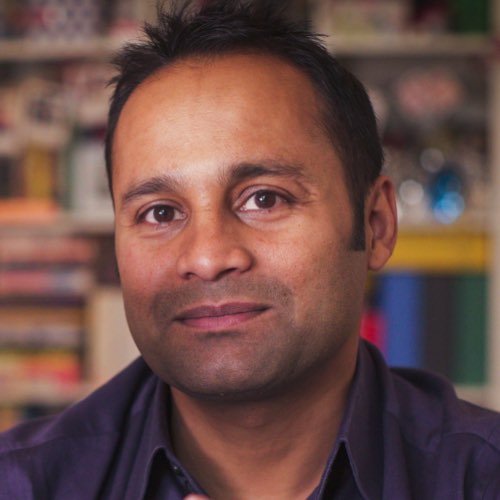What you'll need
- A plastic milk bottle or TetraPak carton
- Scissors
- Shallow baking tray or similar
- Cold water
- Matchstick or cocktail stick
- Washing-up liquid
What to do
- Cut a 2cm by 3cm rectangle out of the milk bottle or carton so that you have a flat piece of material that floats on water. This is the ‘boat’, so feel free to make it more boat-shaped, as in our diagram!
- Fill the tray with water.
- Place the ‘boat’ on the water at one end of the tray.
- Dip the matchstick (or cocktail stick) into the washing-up liquid.
- Dip the soapy end of the matchstick into the water behind the back of the boat.
- Watch as the boat speeds across the water.
- The effect will stop working after a few goes. When this happens, simply change the water in the tray

What's the science
The key to this phenomenon is surface tension. Water molecules experience strong cohesive forces between one another, known as ‘hydrogen bonds’.
The molecules at the surface of the water don’t have any water molecules above them, and so they bond even more strongly to the ones next to and beneath them. This extra-strong cohesion creates a kind of ‘film’ of high tension at the surface (this is what allows some insects to walk on water).
Washing-up liquid is known as a ‘surfactant’ because it weakens the hydrogen bonds and lowers the surface tension of the water.
You can imagine the surface of the water as a web of molecules, each pulling on every other molecule around it.
When the washing-up liquid is added and the bonds between the water molecules here slacken, the closest molecules experience a net force away from the point where the washing-up liquid is added, as they’re ‘pulled away’ by the stronger bonds further away.
The boat is sitting on the water, so it gets carried along by this movement of molecules.
